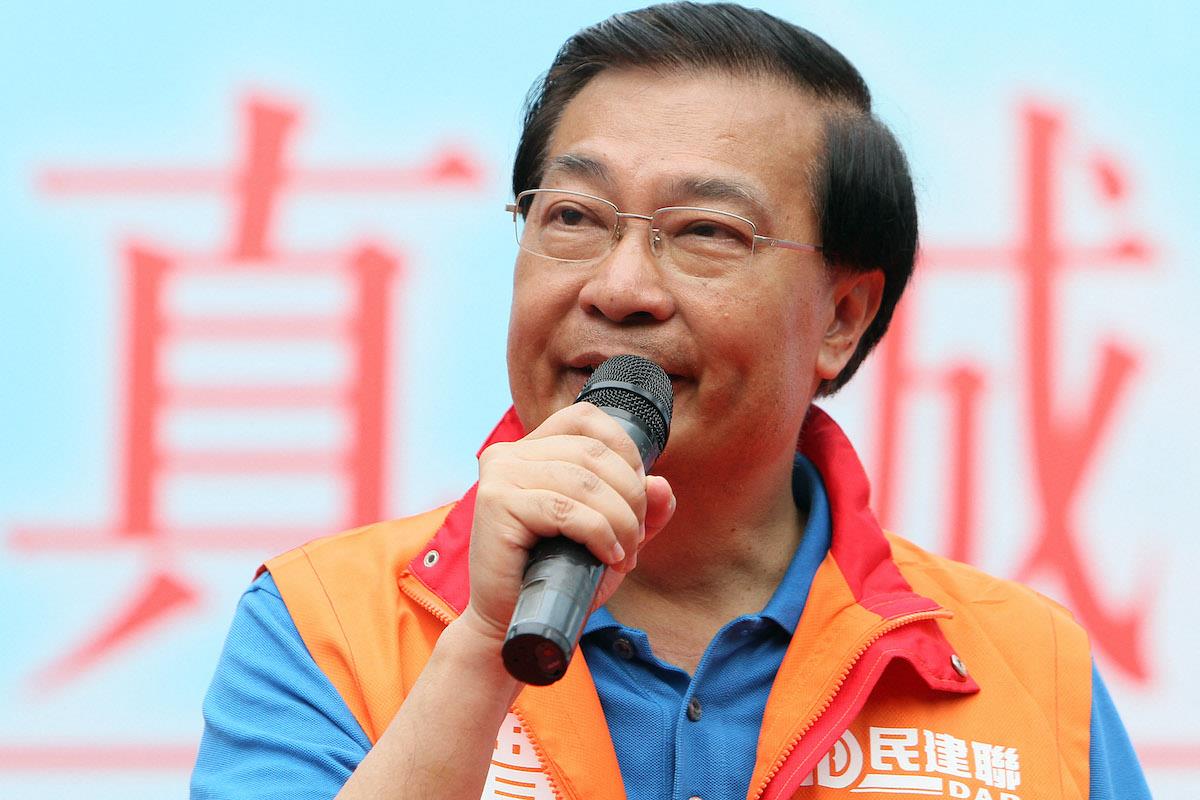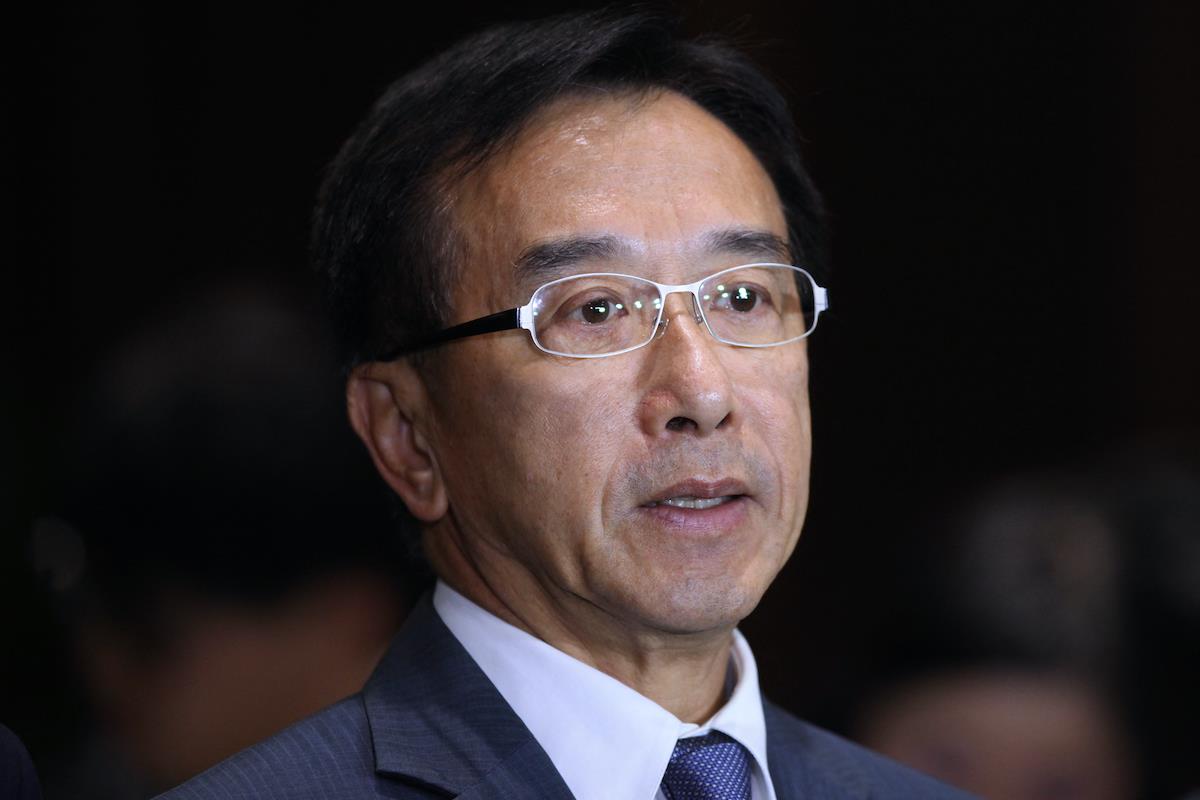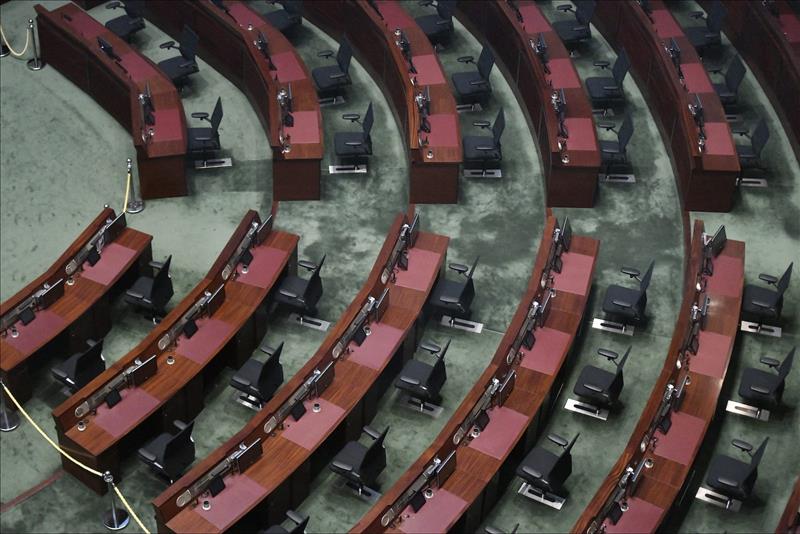
Beijing backs away from anti-sanctions law for HK
(MENAFN- Asia Times) Beijing has decided not to push forward and implement its Anti-Foreign Sanctions Law in Hong Kong after bankers in the city expressed concerns about the impossibility of being compliant with both US targeted sanctions and the retaliatory Chinese law.
It is unlikely the anti-sanctions law's application in Hong Kong will be discussed in the four-day meeting of the standing committee of the National People's Congress (NPC) in Beijing between October 19 and 23, Hong Kong's newspapers reported, citing sources familiar with the situation.
Meanwhile, Beijing hopes Hong Kong will complete legislation by mid-2022 for the Basic Law's Article 23 to implement three more offenses, including treason, sedition and theft of state secrets, on top of those stated in the newly implemented National Security Law.
But Chief Executive Carrie Lam warned on Wednesday it would too difficult to meet that timeline.
Over the past two years, dozens of Hong Kong and Chinese officials have been sanctioned by the US for undermining freedoms and democracy in Hong Kong as well as violating human rights in Xinjiang, where China holds hundreds of thousands of ethnic Uighurs in“vocational” camps.
On June 10 this year, the NPC standing committee passed the Anti-Foreign Sanctions Law, which makes it illegal to implement foreign including US sanctions on the mainland. The new law, however, failed to stop the US from imposing sanctions on seven officials in the central government's Liaison Office in Hong Kong on July 23.
On July 27, Xinhua reported that the NPC standing committee would hold a meeting between August 17 and 20 to discuss and pass a motion that would put more national laws into Annex III of the Basic Law in Hong Kong and Macau.
Tam Yiu-chung, the sole Hong Kong representative on the NPC standing committee, later said the national laws referred to the anti-sanctions law.

Tam Yiu-chung, chairman of pro-Beijing Democratic Alliance for the Betterment and sole Hong Kong representative on the NPC standing committee. Photo: AFP / EyePress News
However, on August 20, the NPC standing committee did not pass the scheduled motion. Some commentators said Beijing needed more time to work out the details about how Hong Kong-based companies could apply for exemptions when they were caught in the middle of foreign sanctions and China's countermeasures.
Others said the delay might be related to an easing of US-China tensions in certain areas including climate change.
On September 10, US President Joe Biden and Chinese President Xi Jinping held a 90-minute phone call that has since been variously interpreted. Two weeks later, in what some saw as a compromise, Huawei Technologies' chief financial officer Meng Wanzhou, who had been detained on fraud charges in Canada since December 2018, was allowed to return to China.
More recently, on Monday, US Trade Representative Katherine Tai said the US would seek to “re-couple” rather than“decouple” with China, while at the same time deploying tools to change China's perceived as unfair, state-centric trade practices.
She described future US-China relations as“durable coexistence” and said she would hold a video call with Chinese Vice Premier Liu He within days.
Some Hong Kong-based financial institution executives as well as those at Chinese banks had previously expressed their worries to Liu about the anti-sanctions law legislation in Hong Kong, HK01.com reported on Tuesday, citing an unnamed source.
A banker quoted in the report said that the inclusion of China's anti-sanctions law into Annex III of the Basic Law in Hong Kong would give the US a way to disrupt Hong Kong's financial stability while foreign banks now based in the city would likely move to Singapore.
The banker said Beijing would not launch the legislation process in the short term, partly because of the recent easing of US-China tensions.
Ronick Chan Chun-ying, a lawmaker representing the banking sector, said he welcomed Beijing's decision to drop the implementation of the anti-sanctions law in Hong Kong as it would be good to“listen to more opinions” first.
Chan said some Hong Kong bankers felt relieved and could now focus instead on new projects such as Qianhai development, Wealth Management Connect and Bond Connect.
Tam said he had not seen anything about the anti-sanctions law on the agenda of the next NPC standing committee meeting, which would be held between October 19 and 23. He said Beijing would instead push forward the legislation of Article 23 of the Basic Law in Hong Kong, hoping to have the law passed in the Legislative Council in the first half of next year.

James Tien resigned from the Executive Council. Photo: AFP / EyePress News
The Hong Kong government first launched Article 23 legislation in 2003 but withdrew the bill as it could not secure enough votes in the LegCo after then-Liberal Party leader James Tien resigned from the Executive Council.
Tien's resignation came after half a million people who were worried about the possible deterioration of their freedoms took to the streets to protest against the bill.
In late 2019, Beijing moved instead to implement the National Security Law, which covers offenses including secession, subversion, terrorism and collusion with foreign forces in the city. The law was passed by the NPC standing committee on June 30 last year.
“Since the national security law has been enacted, there may still be gaps that need to be filled with the Article 23 legislation,” Security Secretary Chris Tang said in a LegCo meeting on September 29.
Tang said the Hong Kong government would consider the potential activities of foreign and Taiwanese political organizations in Hong Kong when drafting Article 23 national security legislation. He said the government would also consider creating a new offense of inciting hatred against the police.
Lam said on Wednesday that it would be too difficult to complete the legislation of Article 23 by the end of her term, which will end on June 30, 2022. She said the legislation would be completed within the next LegCo term between late 2021 and 2025.
Lam said Tuesday that reopening the Hong Kong-mainland border was among the most important tasks of her administration.
“Of course, international travel is important, international business is important, but by comparison, the mainland is more important,” Lam said, adding that foreign companies in Hong Kong would also benefit from the reopening of the mainland border.
“They also have businesses on the mainland, so it is important for them to be able to cross the border to take care of and attend to their businesses,” Lam said.“So the most important thing is to open the border.”
After Hong Kong was hit by the fourth-wave pandemic between November 2020 and January this year, the city's government was ordered by Beijing to tighten its anti-epidemic rules in order to achieve zero local infections.
Until now, incoming travelers from all places , except New Zealand, are still required to be quarantined at designated hotels for 14 to 21 days in Hong Kong, even if they are fully vaccinated. Foreign business chambers have warned that these tough quarantine rules would drive investment away.
Over the past eight months, Hong Kong has in general achieved its target of zero local infections but a few positive cases were still recorded.
On Monday, Hong Kong's health experts said the city and the mainland had started discussing the detailed arrangements about quarantine-free travel across the border.
Read: Beijing stalls plan to impose HK anti-sanctions law
Read: China defiant amid new US trade war threats

Legal Disclaimer:
MENAFN provides the
information “as is” without warranty of any kind. We do not accept
any responsibility or liability for the accuracy, content, images,
videos, licenses, completeness, legality, or reliability of the information
contained in this article. If you have any complaints or copyright
issues related to this article, kindly contact the provider above.

















Comments
No comment